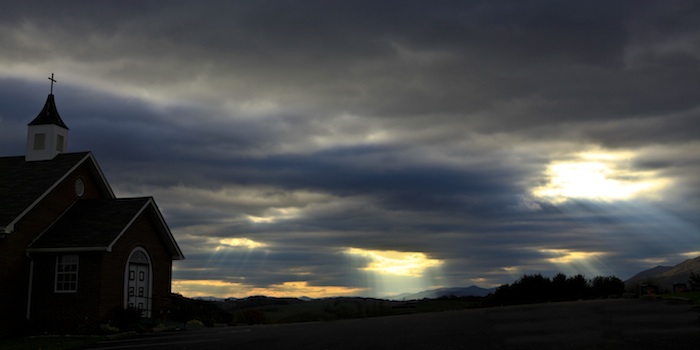Arise, O God, defend your cause;
remember how the foolish scoff at you all the day! (Psalm 74:22)
This verse captures the essence of the prayer in this psalm. Things have gone terribly wrong for the people of God. Enemies have come into the land and destroyed the temple. They “profaned” the temple, tore it apart, destroyed things of value, set it on fire, and tore it “down to the ground” And if that wasn’t bad enough, “they burned all the meeting places of God in the land” (v8).
These wicked oppressors now scoff openly at God and his people. And God’s people have heard no word from him concerning this situation. There has been no prophet to speak to the people God’s words. None of them knows how long this must go on, and so they cry out in prayer through this psalm.
The really amazing thing about this prayer is that in 23 verses, only a few verses are about the ones who are praying. In other words, the bulk of the prayer is taken up with something other than talking about themselves.
To be fair, there are four verse where they do talk about themselves.
V1 – attributes their situation to God’s sovereign anger
V2 – reminds God that they are his people, whom he purchased
V9 – laments the fact that they are without a prophet to speak to them
V19 – asks for deliverance
V21 – pleads mercy for the downtrodden, poor, and needy, which is presumably, them
That’s amazing. Instead of dwelling on themselves throughout their prayer, they only ask briefly for deliverance in verse 19, and then ask two things for themselves in verse 21. They ask 1) that their prayer would be heard and 2) that they would be faithful to praise God.
The rest of the prayer deals with the situation they are in, but in a way quite different than how we normally think of life. The psalmist isn’t so much concerned with their plight (he is, because he does address it, but he understands it differently), as he is with the glory of God. His prayer is not that they would enjoy comfort, but that God’s glory would be known in the world.
That is how he views the situation. Not that the enemies have infringed on his own comfort or hurt him in some way, but rather they have offended God. They have scoffed at God and his glory. They have desecrated his temple. They have mocked his power and reviled his name.
The culmination of the prayer is found in verses 22-23, where the psalmist pleads with God to “defend your cause”, saying that the enemies are God’s foes, not his own, that they have scoffed at God, not people, and that they have risen against God, not Israel.
He sees the offense as being against God, not himself.
That is a huge shift in perspective. This is a large view of God, that sees him as the most valuable treasure in existence, and therefore seeing offense against him as the primary offense.
Too often, I focus on how someone has offended me. I think about how they have not treated me as I think I deserve. And I give little or no thought to how their actions have offended an almighty, holy, God. Which means, I’m ignoring the glory of God just as they are, and I’m just as guilty as they are!
Beware though! Praying for the glory of God, while your heart is truly concerned only with benefit for yourself, is hypocrisy. In that case you are attempting to use and manipulate God for your own purposes! That is not what the psalmist is doing here.
The psalmist’s position here is to place priority on the value of God’s glory. His own situation is only of concern as it reflects and displays God’s glory to the world.
So ask yourself this: when you pray, what is your priority? What do you value most? It will be evident in the things you pray for. Do you pray for the glory of God to shine in the darkness of the world? Or do you pray for your own comfort and selfish desires?

Leave a Reply